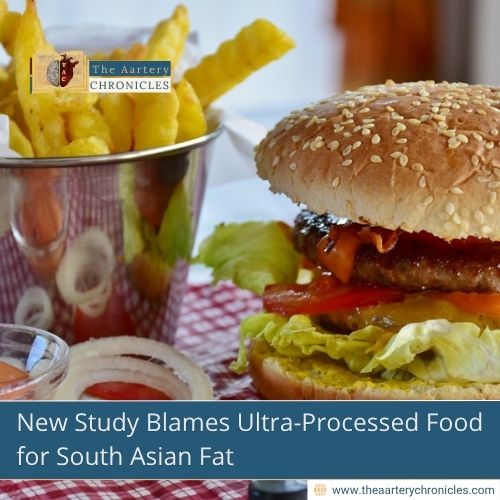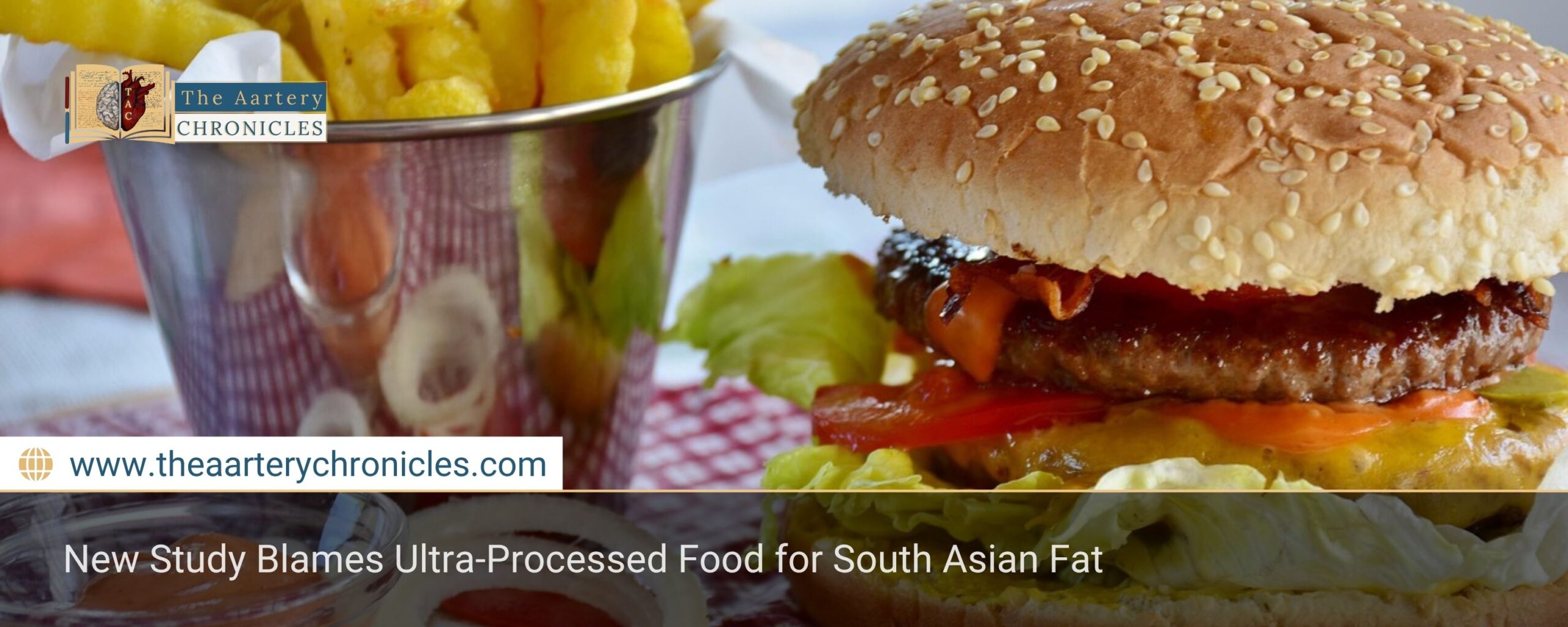

New Study Blames Ultra-Processed Food for South Asian Fat
A recent study examining eating habits across South Asian countries has found that ultra-processed foods (UPFs) are widely consumed, particularly in Bangladesh, Sri Lanka, and parts of India. These highly processed products are contributing significantly to daily calorie intake, raising health concerns. The data used in this study came from the South Asia Biobank, a UK-funded initiative based at Imperial College London, which aims to better understand chronic disease risks in South Asian populations.
What Are Ultra-Processed Foods?
Ultra-processed foods are products that go through several industrial processes and often contain added sugars, preservatives, flavour enhancers, and other additives. Common examples include packaged biscuits, sugary drinks, salty snacks, and breakfast cereals.
These foods are often low in nutrients and linked to serious health risks like obesity, type 2 diabetes, heart disease, and other metabolic conditions.
Key Findings from the Study
The study, published in The Lancet Regional Health – Southeast Asia, analysed dietary data from over 60,700 adults across Bangladesh, Pakistan, Sri Lanka, and India. The research was conducted in collaboration with institutions such as the University of Cambridge (UK), the Madras Diabetes Research Foundation (India), and other partner organisations in the region.
Widespread Consumption
- In Bangladesh, Sri Lanka, and North India, nearly 75% of adults reported consuming ultra-processed foods in the previous 24 hours.
- In contrast, only 41% of participants in South India and Pakistan said the same.
Contribution to Daily Calorie Intake
Ultra-processed foods accounted for 13% to 17% of total daily energy intake across the regions studied. Among the most commonly consumed items:
- Biscuits were a major contributor in all regions.
- In Pakistan, sweetened beverages were particularly popular.
- South India saw high consumption of packaged salty snacks.
- In Bangladesh, breakfast cereals were commonly consumed.
Who Consumes More Ultra-Processed Foods?
The study also explored the sociodemographic factors associated with UPF consumption:
- Age played a role, but patterns varied:
- In Pakistan and Sri Lanka, younger adults consumed more ultra-processed foods.
- In Bangladesh and North India, older adults were more likely to consume them.
- Gender differences were noted, with women across most regions consuming more UPFs than men.
- Marital status also influenced consumption: Individuals who were married or living with a partner were less likely to consume these foods compared to those who were single.
Why This Study Matters
According to the researchers, this is the first large-scale study to assess how social and demographic factors relate to ultra-processed food consumption in South Asia. Previous global studies had not included data from this region, leaving a critical knowledge gap.
The researchers believe these findings can help shape public health strategies aimed at reducing UPF consumption and promoting healthier eating habits in South Asia.
Conclusion
Ultra-processed foods are becoming a regular part of diets in many South Asian countries. Understanding who is consuming them and why is an important first step in tackling the rise in lifestyle-related diseases in the region.
For healthier choices, experts recommend minimising the intake of heavily processed foods and focusing on fresh, whole foods like fruits, vegetables, whole grains, and legumes.
Source: Inputs from various media Sources

Priya Bairagi
Reviewed by Dr Aarti Nehra (MBBS, MMST)
I’m a pharmacist with a strong background in health sciences. I hold a BSc from Delhi University and a pharmacy degree from PDM University. I write articles and daily health news while interviewing doctors to bring you the latest insights. In my free time, you’ll find me at the gym or lost in a sci-fi novel.








